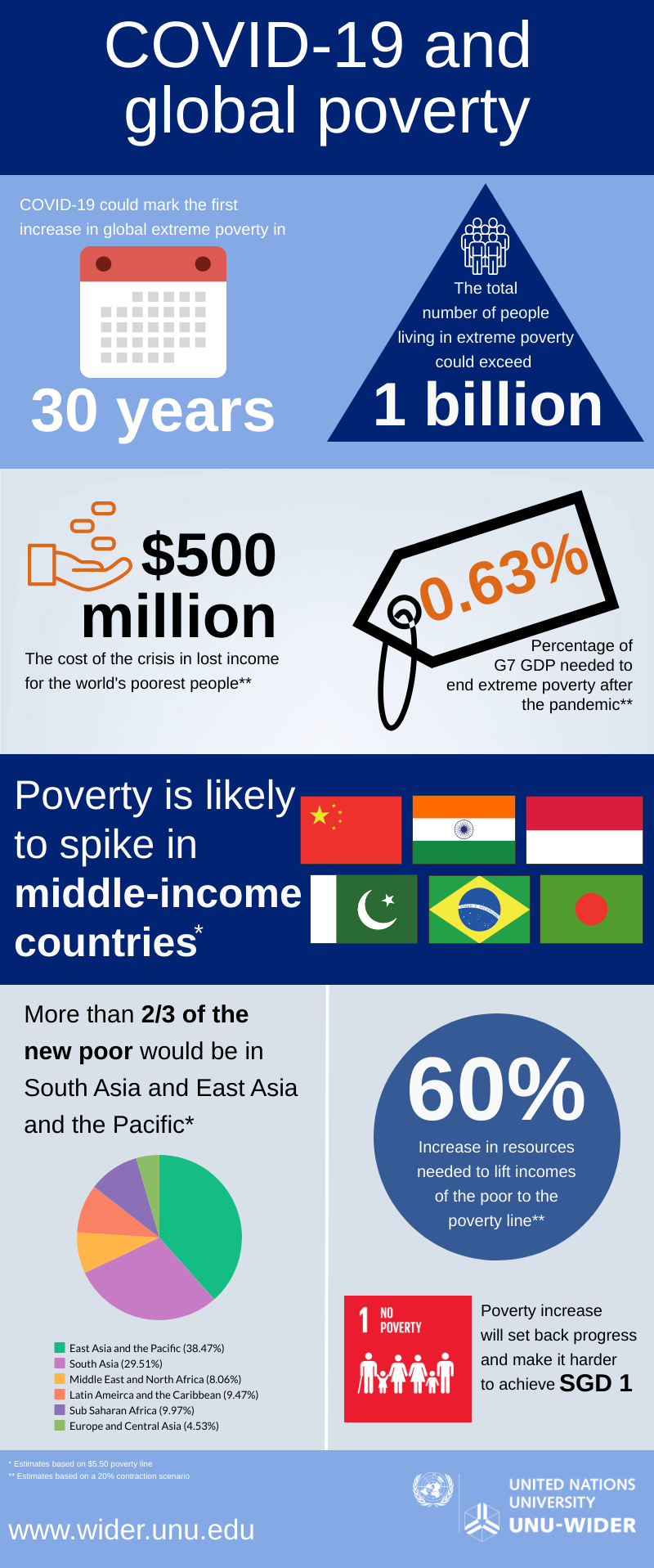News
Press release: COVID-19 could drive global poverty back over one billion people as the world’s poorest face up to US$500 million per day in lost income
In dramatic new numbers researchers estimate that extreme poverty could spike as a result of the COVID-19 pandemic, on the day the postponed meeting of the world’s richest nations, the G7, should have finished.
The researchers are now calling for urgent global leadership from the G7, G20, and the multilateral system, and propose a three-point plan to address the impact of COVID-19 on global poverty quickly.
The paper, Precarity and the Pandemic: COVID-19 and Poverty Incidence, Intensity and Severity in Developing Countries, finds that:
- Extreme poverty could rise to over 1 billion people globally as a result of the crisis.
- The cost of the crisis in lost income could reach US$500 million per day for the world’s poorest people, and the intensity and severity of poverty are likely to be exacerbated dramatically.
- The estimates show that poverty is likely to increase dramatically in middle-income developing countries and there could be a significant change in the distribution of global poverty.
- The location of global poverty could shift back towards developing countries in South Asia and East Asia.
Researchers from King’s College London and Australian National University published the new paper with the United Nations University World Institute for Development Economics Research (UNU-WIDER). Andy Sumner, Professor of International Development at King’s College London and a Senior Non-Resident Research Fellow at UNU-WIDER, conducted the research with Eduardo Ortiz-Juarez, of King’s Department of International Development, and Chris Hoy from the Australian National University.
Professor Sumner said: ‘The COVID-19 crisis could take extreme poverty back over 1 billion people. This is because millions of people live just above poverty. Millions of people live in a precarious position one shock away from poverty. And the current crisis could be that shock that pushes them into poverty’.
‘The actual poverty impacts will be determined by what governments do to mitigate the damaging consequences of the pandemic. We have a three-point plan, but global leadership is urgently needed on this. The world’s poorest can’t wait until the G7 meet in September or the G20 meet in November’, Professor Sumner added.
The authors propose a three-point plan to address the global poverty impacts.
Professor Kunal Sen, Director of UNU-WIDER said: ‘These new estimates about the level of poverty in the world and the cost of the COVID-19 pandemic to the world’s poor are sobering. We cannot stand by and see the hard work and effort of so many be eradicated. We will know what the real impact is in time, but the necessary action to ensure we achieve the Sustainable Development Goals by 2030 needs to be planned now.’

 Join the network
Join the network